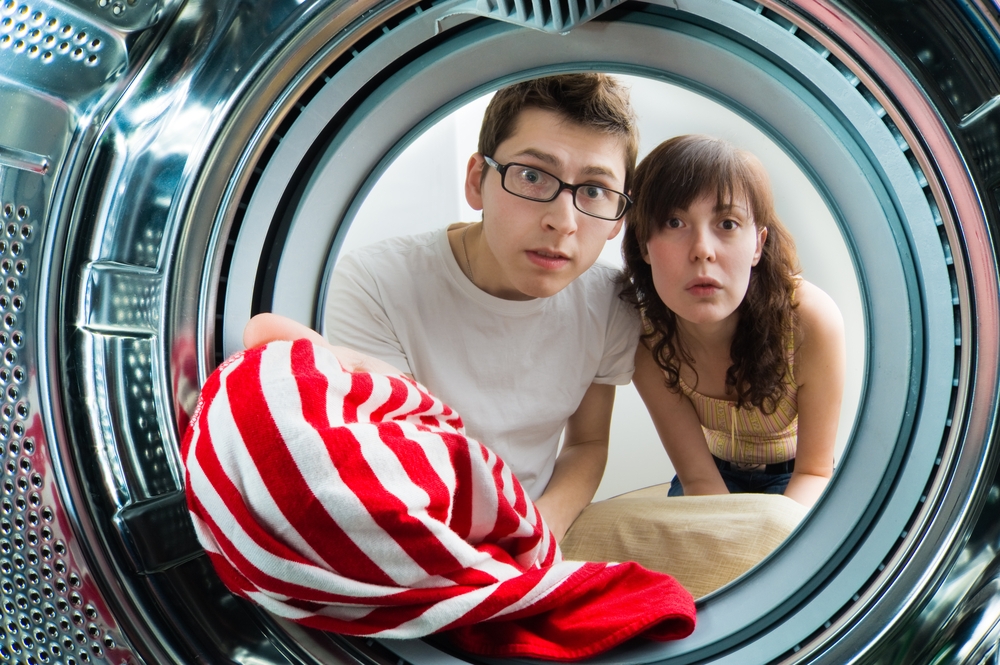Send your question to Umbra!
Q. Dear Umbra,
My landlord has installed new green washing machines and recommends that we use only Ares laundry detergent powder. Is this a green product? Can you recommend a substitute detergent (Ares seems to be available only in bulk)?
Charles D.
Cambridge, Mass.
A. Dearest Charles,
You didn’t actually specify which Cambridge you are from, but I took the liberty of adding “Mass.,” since it seems the likeliest place to find a) landlords who proactively install green washing machines and b) letter-writers who don’t feel it necessary to specify which Cambridge they are from.
Before we get to your detergent dilemma, I want to praise that landlord of yours for taking such a sensible step. She or he has recognized that water-efficient, energy-efficient machines will save money — which could, in turn, help keep your rent down. Now that the machines are in place, this person is protecting a new investment by asking tenants to be thoughtful about which detergent they use.
I don’t think the recommended detergent brand is your only choice, but if the machines are high-efficiency (HE) models, you do need a detergent that’s HE-compatible. I get a version of this question fairly often: “Do I really have to use special soap in my new super-efficient washing machine (or dishwasher)?” The answer is yes. Look for the little logo. Because these machines use much less water than conventional models, they need a low-sudsing soap that understands them. Sounds like a pain, but the overall savings are worth it, I promise. And doing otherwise risks gunking up the machine, voiding the warranty, or damaging your clothes, as many an HE owner will attest. You can learn more about the basics from this overly jovial but useful bit of cleaning-industry propaganda [PDF].
You know I shy away from recommending or dis-recommending specific products. But since you have named names: There are two versions of Ares powder detergent, one of which is indeed green (they also make a liquid version). The manufacturer, First Preference Product Co., seems quite earnest about its sustainability efforts, although its products are mostly intended for vending machines, so if you buy a case you will end up with dozens of single-use packages. If you poke around, you’ll find other green-leaning HE options out there, including Seventh Generation, Biokleen, and a small company that’s new to me, GrabGreen. I haven’t tested these detergents (though Grist has tested non-HE detergents in the past), nor have I performed a thorough analysis of their ingredients and costs, so I’ll leave that to you. I do want you to look for products that are NPE- and phosphate-free, and ideally fragrance-free; and I can point you to some health-related rankings of HE detergents from the Environmental Working Group. (There’s also the DIY option — in fact, Grist’s own green-living pioneer, Elisabeth Kwak-Hefferan, aka the Greenie Pig, is at this very moment exploring the frontiers of homemade laundry soap. Watch for her column later this week.)
By the way, the fact that a product is available only in bulk should not be a mark against it. Buying in bulk reduces packaging and often saves you money. Could you and your fellow renters save even more by forming some sort of detergent-buying collective? Sudsy socialism! That should fly in Cambridge.
I know being a renter can be tough. While there are things you can do to green any apartment, I hear all too often from renters who can’t persuade their landlords to take green steps. So be happy that yours has seen the light, Charles — and treat those appliances well.
Agitatorly,
Umbra




